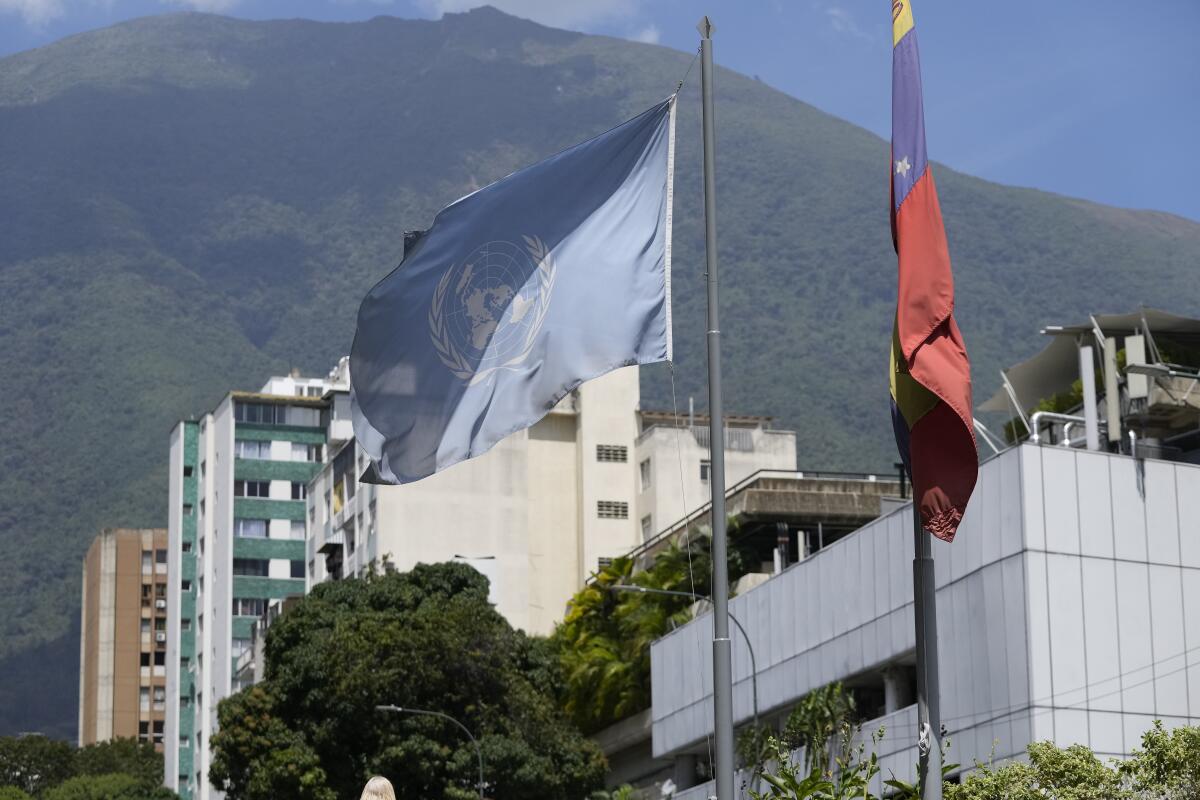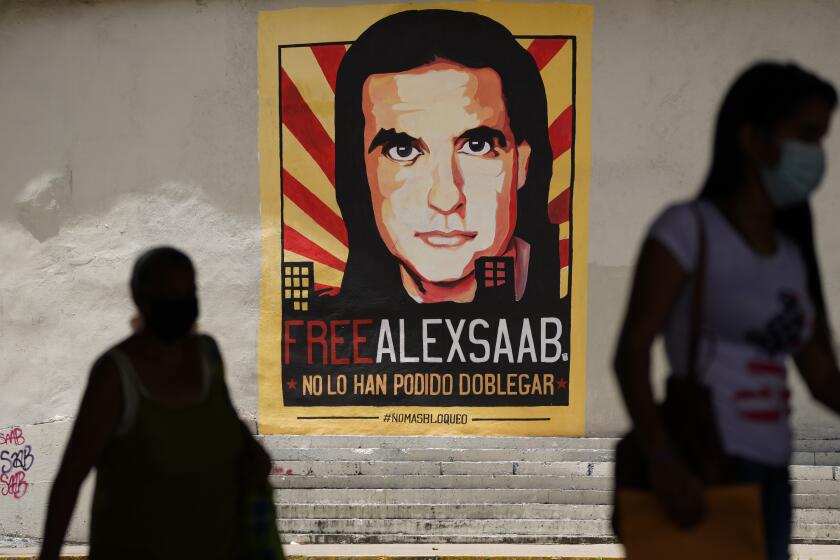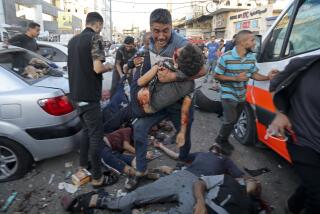Venezuela orders U.N. office on human rights to close and its staff to leave in 3 days

- Share via
CARACAS, Venezuela — Venezuela’s government on Thursday ordered the local United Nations office on human rights to suspend operations and gave its staff 72 hours to leave, accusing it of assisting coup plotters and terrorist groups.
Foreign Affairs Minister Yván Gil announced the decision at a news conference in Caracas, the capital, amid heightened concerns that the government is repressing real or perceived opponents in an election year. Nearly a week ago, Venezuela detained a prominent human rights attorney and members of her family, setting off a wave of criticism inside and outside the country.
Gil said the local technical advisory office of the U.N. High Commissioner for Human Rights, authorized in 2019, was supposed “to improve, to optimize,” human rights. Instead, he said, it had become an “international sounding board to maintain a discourse against the Bolivarian government and against the Venezuelan people.”
The office had “become the private law firm of coup plotters and terrorist groups that permanently conspire against the country,” Gil said, though he did not show any evidence or point to a specific example of that alleged activity.
Ravina Shamdasani, spokesperson for the U.N. Human Rights Office of the High Commissioner, based in Geneva, Switzerland, said the agency regretted Venezuela’s decision and is evaluating next steps.
“We continue to engage with the authorities and other stakeholders,” Shamdasani said. “Our guiding principle has been and remains the promotion and protection of the human rights of the people of Venezuela.”
The agency on Tuesday had expressed “deep concern” over the detention of human rights attorney Rocio San Miguel. In a tweet, the office urged “her immediate release” and respect for her right to legal defense.
San Miguel was taken into custody Friday at the airport near Caracas while she and her daughter awaited a flight to Miami. Authorities did not acknowledge her detention until Sunday, and as of Wednesday, her attorney had not been allowed to meet with her.
The Biden administration has released a close ally of Venezuelan President Nicolás Maduro in a swap for jailed Americans.
About an hour before Gil’s announcement, the U.N. agency called for the respect of “due process guarantees, including right to defense” in her case.
Atty. Gen. Tarek William Saab said earlier in the week that San Miguel was being held at the Helicoide prison, an infamous institution for political prisoners. She is facing charges of treason, conspiracy and terrorism.
San Miguel’s daughter, ex-husband, two brothers and former partner also were detained following her arrest. Of them, only her former partner, Alejandro Jose Gonzales de Canales Plaza, remains in custody. He is facing charges of revealing state and military secrets and obstruction of justice.
Gil told reporters that President Nicolás Maduro agreed to cooperate with the high commissioner in September 2019 to establish the local technical advisory office in Caracas to “show the world the advances in human rights in Venezuela.”
He said the office had 13 staff members as of Thursday.
Months before Maduro’s 2019 decision, the high commissioner at the time, Michelle Bachelet, had published a scathing report detailing widespread human rights abuses at the hands of Venezuelan government security forces.
The U.N. Human Rights Council had also voted to set up an independent fact-finding mission to look into allegations of killings, disappearances, arbitrary detention and torture in Venezuela.
The fact-finding mission has never been allowed to visit the country. But its investigations have documented, among other things, that the government intensified efforts to curtail democratic freedoms ahead of this year’s coming presidential election. The mission accused the government of using threats, surveillance and harassment against politicians, labor leaders, journalists, human rights defenders and other real or perceived opponents.
More to Read
Sign up for Essential California
The most important California stories and recommendations in your inbox every morning.
You may occasionally receive promotional content from the Los Angeles Times.











